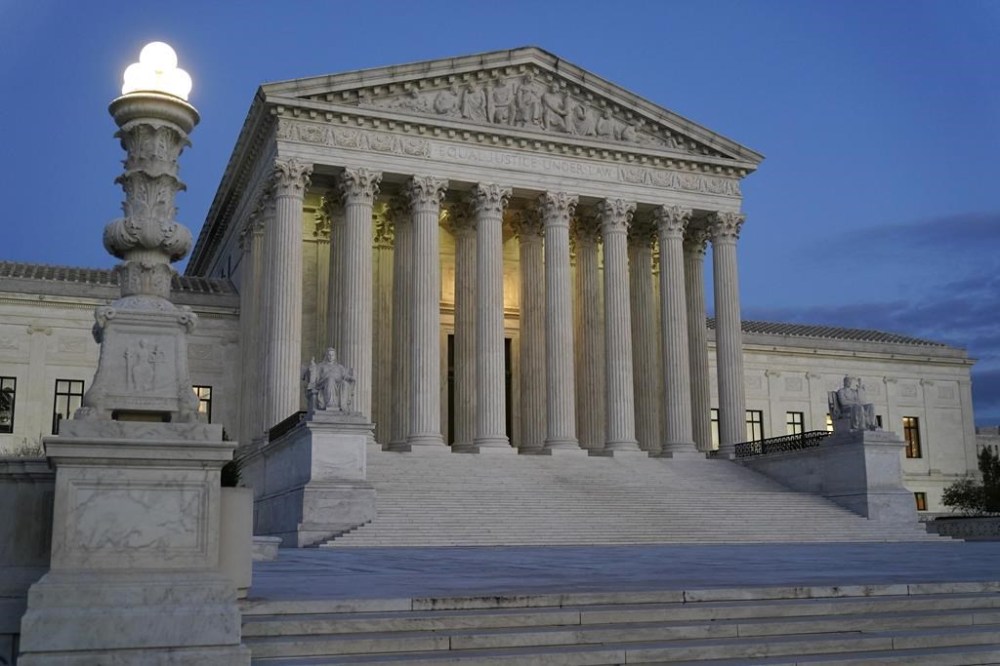Supreme Court lets challenges to federal agencies go forward
Advertisement
Read this article for free:
or
Already have an account? Log in here »
To continue reading, please subscribe:
Monthly Digital Subscription
$1 per week for 24 weeks*
- Enjoy unlimited reading on winnipegfreepress.com
- Read the E-Edition, our digital replica newspaper
- Access News Break, our award-winning app
- Play interactive puzzles
*Billed as $4.00 plus GST every four weeks. After 24 weeks, price increases to the regular rate of $19.00 plus GST every four weeks. Offer available to new and qualified returning subscribers only. Cancel any time.
Monthly Digital Subscription
$4.75/week*
- Enjoy unlimited reading on winnipegfreepress.com
- Read the E-Edition, our digital replica newspaper
- Access News Break, our award-winning app
- Play interactive puzzles
*Billed as $19 plus GST every four weeks. Cancel any time.
To continue reading, please subscribe:
Add Free Press access to your Brandon Sun subscription for only an additional
$1 for the first 4 weeks*
*Your next subscription payment will increase by $1.00 and you will be charged $16.99 plus GST for four weeks. After four weeks, your payment will increase to $23.99 plus GST every four weeks.
Read unlimited articles for free today:
or
Already have an account? Log in here »
Hey there, time traveller!
This article was published 14/04/2023 (907 days ago), so information in it may no longer be current.
WASHINGTON (AP) — The Supreme Court is allowing challenges to the structure of two federal agencies to go forward in federal court.
The high court ruled unanimously Friday to allow challenges to the structures of the Federal Trade Commission and the Securities and Exchange Commission to go forward in federal court. Lower courts had split on whether those challenges could proceed.
In one case, the FTC had brought an enforcement action against Axon Enterprise, the Arizona-based company best known for developing the Taser, arguing that its purchase of its competitor Vievu for approximately $13 million was improper. The other case involved an SEC enforcement action against Michelle Cochran, a certified public accountant. Axon and Cochran responded by suing in federal court and arguing that the structure of the FTC and SEC respectively are unconstitutional. Each said that the administrative law judges that oversee enforcement actions are insufficiently accountable to the president, in violation of separation-of-powers principles in the Constitution.

Both lawsuits were initially dismissed. Axon and Cochran appealed and while a federal appeals court in California said Axon’s lawsuit could not go forward, a federal appeals court based in New Orleans said Cochran’s case could move ahead.
Justice Elena Kagan wrote in an opinion that the question for the court was whether federal courts can “resolve the parties’ constitutional challenges to the Commissions’ structure.” “The answer is yes,” she wrote, saying federal courts are not barred from “entertaining these extraordinary claims.”
The cases the court ruled in are Axon Enterprise v. Federal Trade Commission, 21-86, and Securities and Exchange Commission et. al. v. Cochran, 21-1239.

